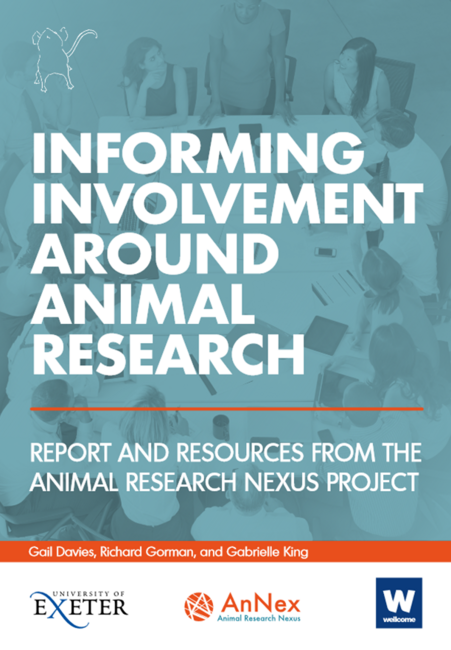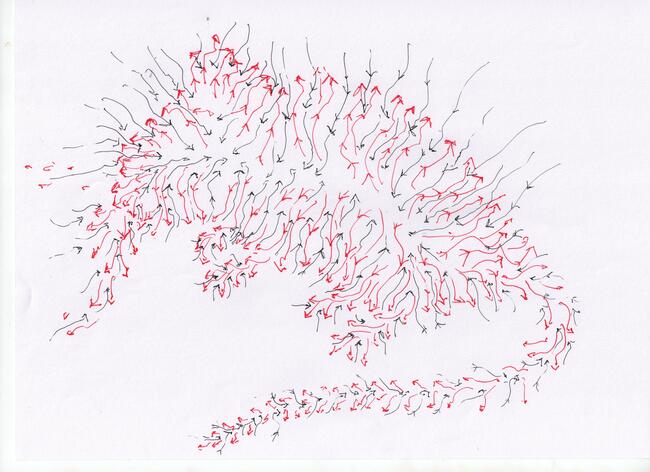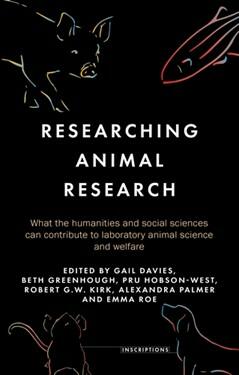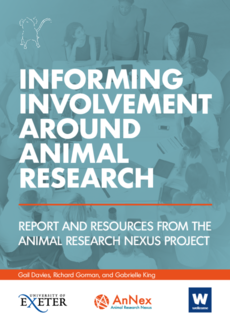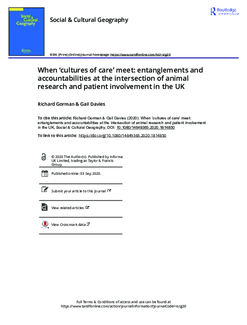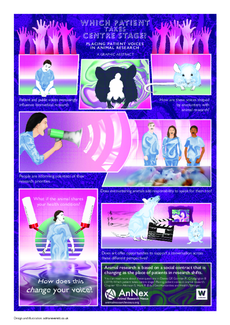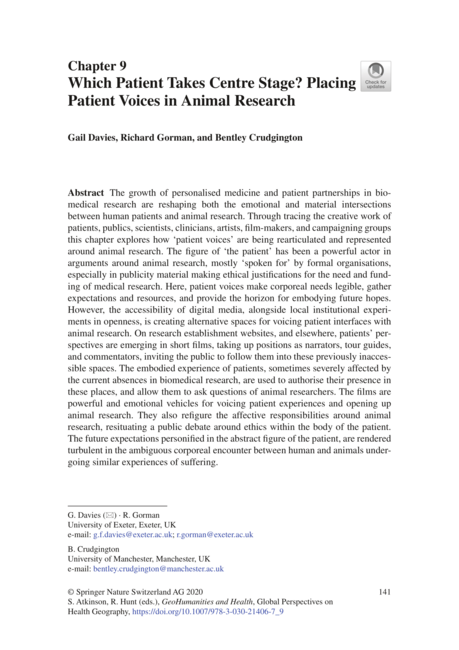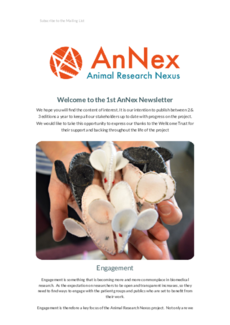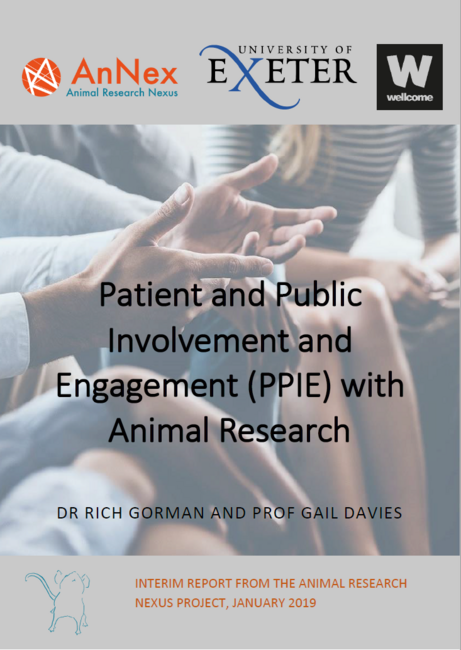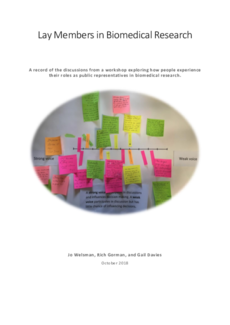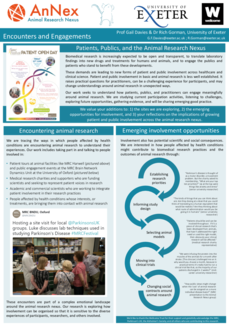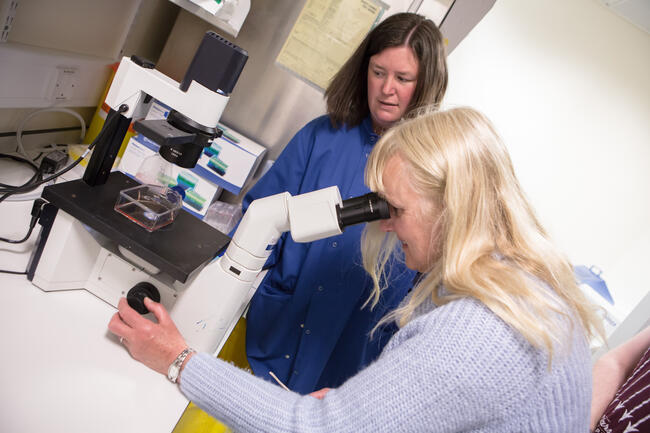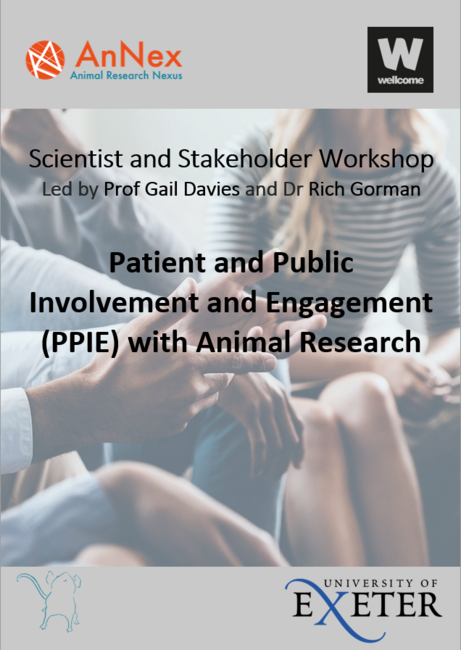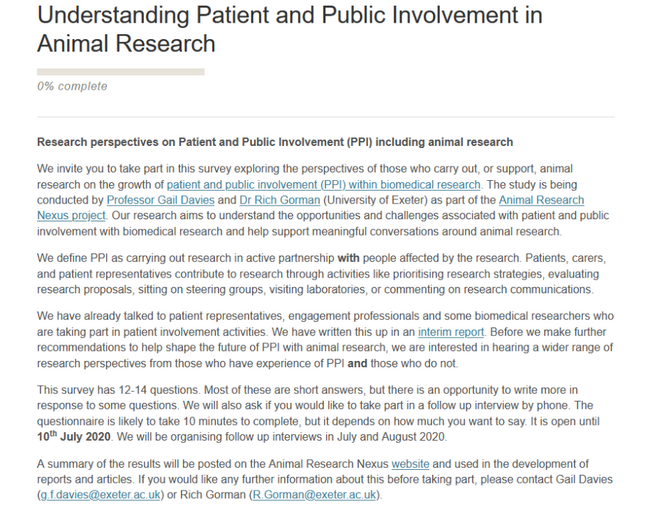Patient Involvement
Relevant, tagged site content:
Engagement Activities
The Animal Research Nexus team at the University of Exeter have developed a range of resources to help understand and support involvement with research for when conversations include animal research.
Publications
This book chapter is forthcoming in the book Multi-Species Dementia Studies: Towards an Interdisciplinary Approach, edited by Nick Jenkins, Anna Jack-Waugh, and Louise Ritchie, from Bristol University Press. The chapter brings work by Davies and Gorman’s on how patient representatives review research proposals that use animal models in dementia research with Richard Milne’s work on the emergence, development, and ‘calibration’ of animal models over the last 40 years of Alzheimer’s research. Bringing these projects together enables us to explore how multispecies relations are made in Alzheimer's research, and how people affected by dementia are placed in several ways through these processes, only some of which they are aware of and thus able to affect.
This book features highlights from the Animal Research Nexus Programme to demonstrates how the humanities and social sciences can contribute to understanding what is created through animal procedures - including constitutional forms of research governance, different institutional cultures of care, the professional careers of scientists and veterinarians, collaborations with patients and publics, and research animals, specially bred for experiments or surplus to requirements.
Developing the idea of the animal research nexus, this book explores how connections and disconnections are made between these different elements, how these have reshaped each other historically, and how they configure the current practice and policy of UK animal research.
This report contributes to a growing body of advice around how to involve people affected by health conditions in laboratory or biomedical research. It draws on work completed as part of the Animal Research Nexus Programme (2017-2023) and brings together our findings with resources to help people who might be involved in conversations around the use of animals in laboratory research in the UK.
A good culture of care, empowering individuals within organisations to care and reflecting wider social expectations about care, is now a well-documented aspiration in managing practices of laboratory animal research and establishing priorities for patient and public health. However, there is little attention to how different institutional cultures of care interact and what happens to the accountabilities of caring roles and the entanglements of caring practices when institutional cultures meet.
Part of the Animal Research Nexus programme involves exploring the changing relationships between people affected by different health conditions and animal research. Our new chapter explores how ‘patient voices’ are represented around animal research. And we’ve made it into a graphic abstract...
Part of the Animal Research Nexus programme involves exploring the changing relationships between people affected by different health conditions and animal research. This chapter explores how ‘patient voices’ are represented around animal research.
This report discusses the different expectations people have of Patient and Public involvement and Engagement with animal research. We review the opportunities and challenges across perspectives. We also identify preliminary recommendations for enabling more meaningful involvement.
This report provides a record of the discussions at a workshop which brought together lay members from across the biomedical research sector to discuss the opportunities and challenges of shaping biomedical research.
This poster explains our research exploring how patients, publics, and practitioners might engage meaningfully around animal researc and identifying how people affected by health conditions might contribute to the research practices that potentially involve animal research.
Blog entry
Research conducted by members of the AnNex team has highlighted the growing number of initiatives designed to engage and involve people with health conditions with the research that affects them.
A lot of guidance has been written about how to actively involve patients and the public in clinical research, and evidence is growing about the value of this.
Earlier this year, the MRC Brain Network Dynamic Unit invited lay members of local branches of Parkinson’s UK to visit the unit
Animal research can be a controversial issue. It involves complex questions across science, health, animal welfare, and ethics and is the subject of ongoing social and scientific debate.
Events
We are holding a workshop in April 2019 to bring together scientists and stakeholders to progress practices that will enable people to have more comfortable and productive conversations about animal research within the context of patient and publi
Announcements
Are you interested in what conversations with patients or carers might offer your research? Or do you think patient involvement with biomedical research is not a current priority?
Project partners

The Medical Research Council’s Mary Lyon Centre (MLC) is located on the Harwell Campus, Oxfordshire.

The Medical Research Council Brain Network Dynamics Unit at the University of Oxford opened in April 2015.
